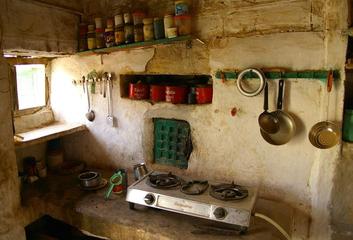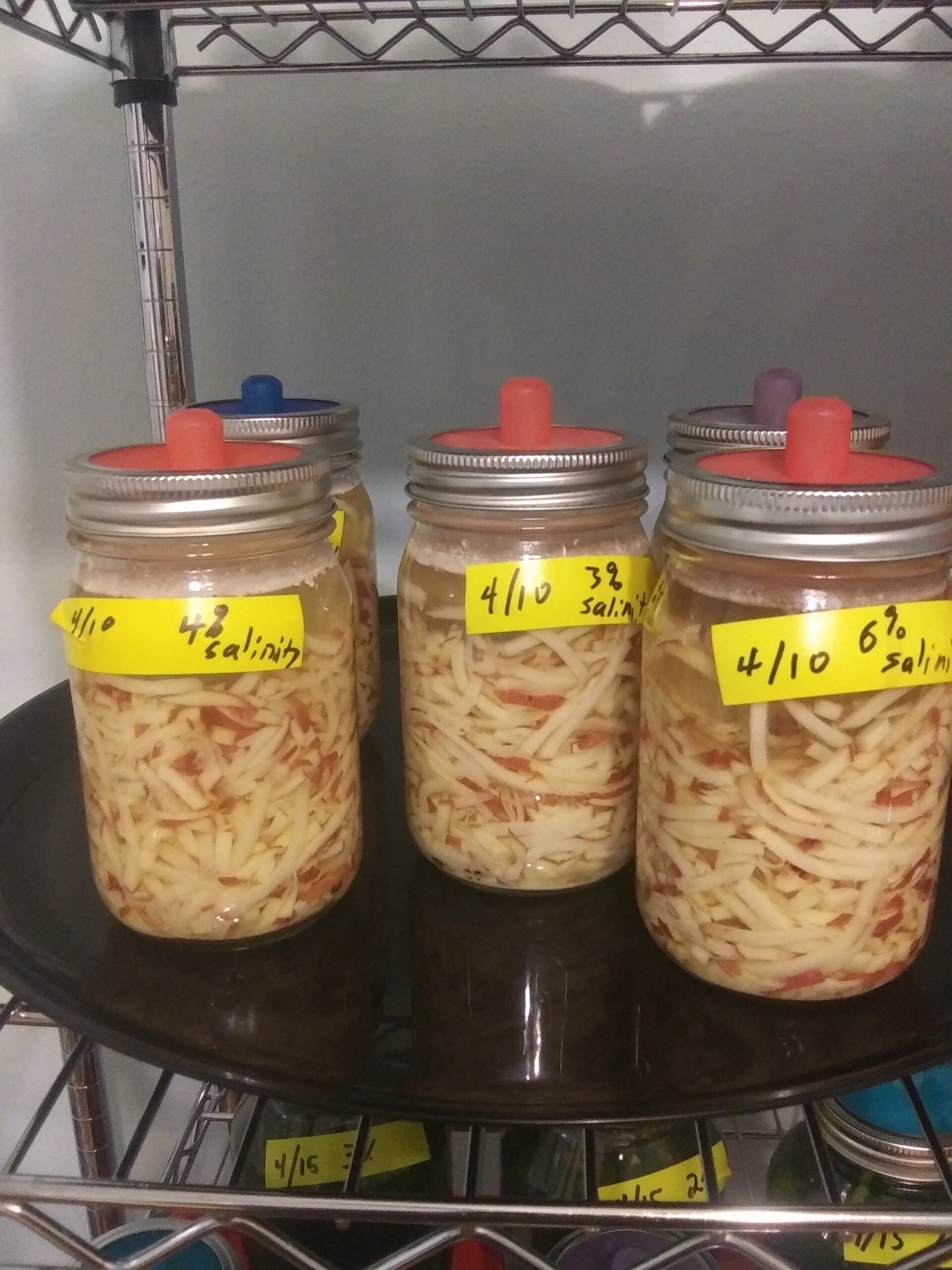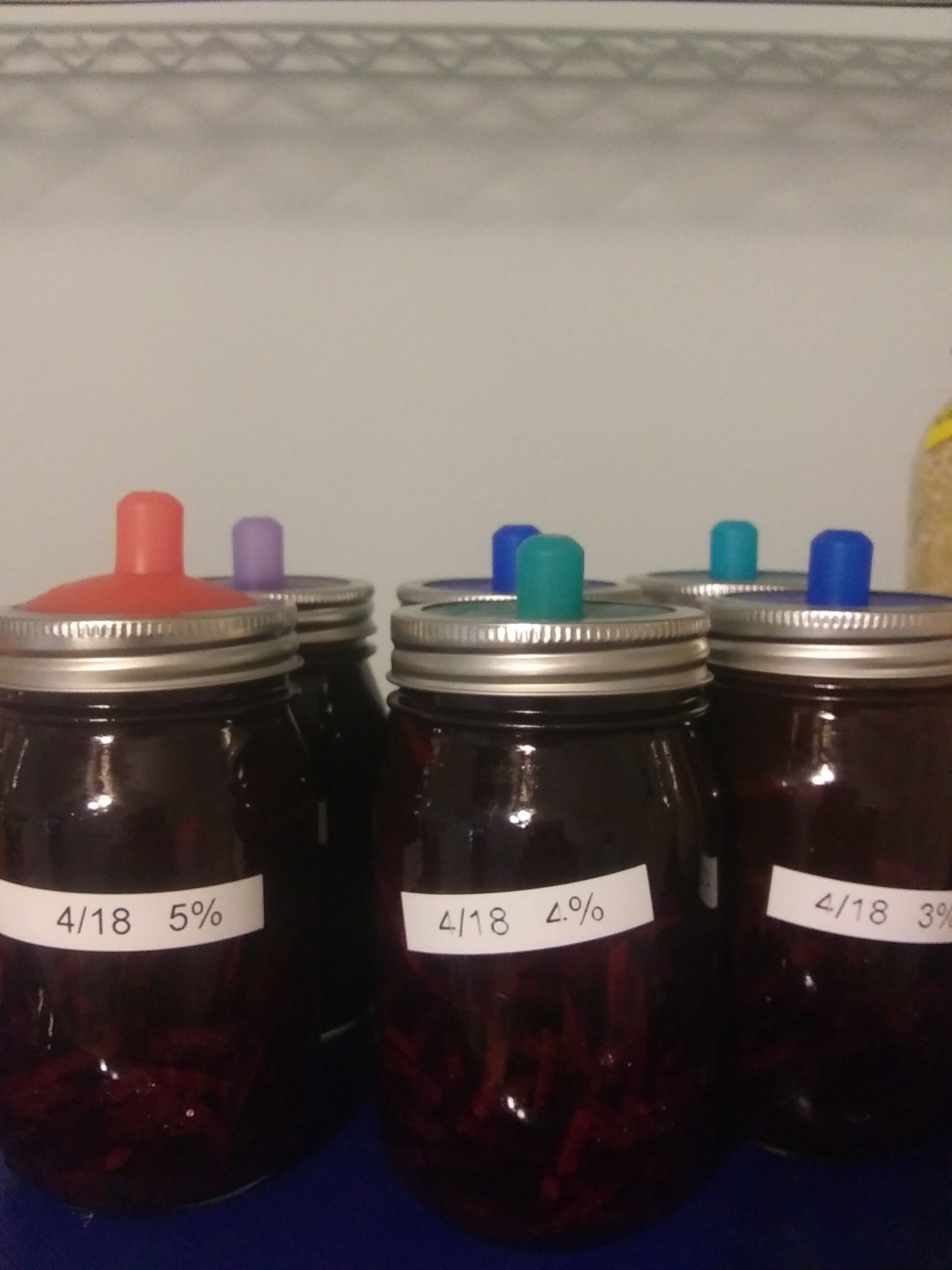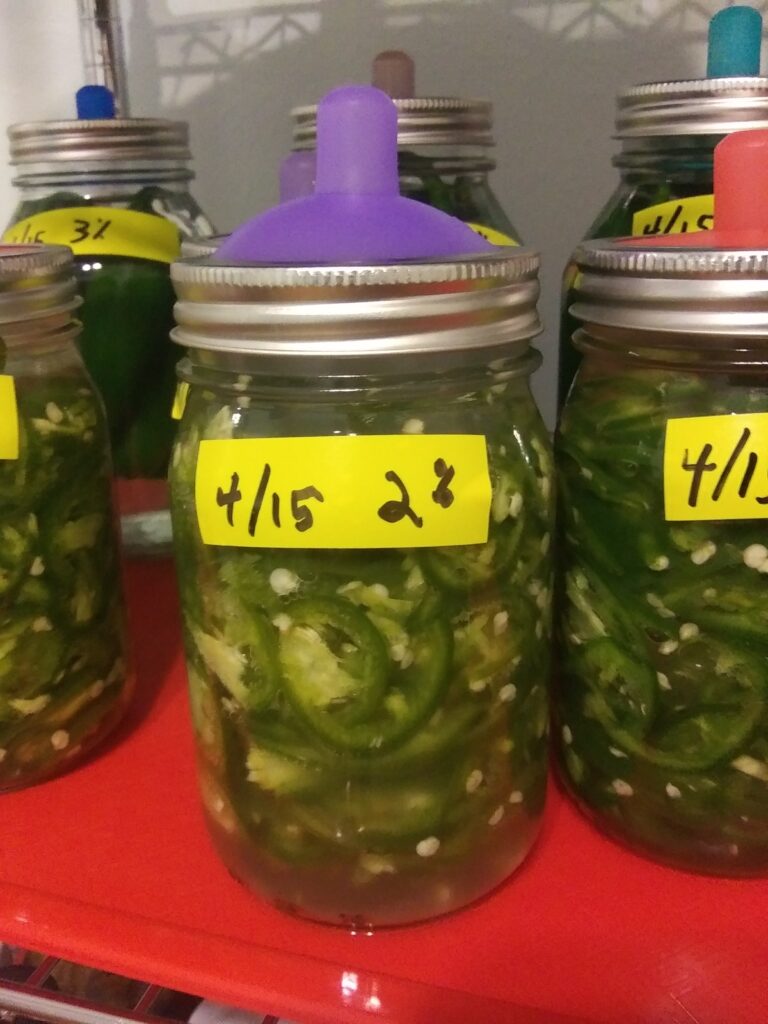No products in the cart.
- Posted on
- By Scotty
- In Recipes, Uncategorized

Cooking with Fermented Foods
Surprise! The ferment blog is going to have a recipes page. It’s kind of a no brainer. At the heart of this entire lifestyle is cooking and eating. You commit to a level of time and energy that you are willing to put into your daily food regimen when you start a garden or a ferment closet. When you grow and prepare food, you must eventually cook and eat it.

It’s easy to lose sight of the time commitment involved with cooking and eating. When I first created my ferment room I didn’t fully realize that I would mostly stop eating out. I have to, I have a rotation of food coming through. This involves at least an hour a day of cooking and preparing food. On weekends or whenever I have extra time, I may spend several hours preparing food for later. Of course we are all human, sometimes you take days off and sometimes you do abbreviated cook days. The idea is to not have a big burst of energy and then slack off, its about generally doing something day afer day and making it a part of your life. Making sure you have the time and energy to give to cooking and preparing food is essential to good health, there is no other way around it. Being healthy means eating healthy and in todays world that means cooking and preapring your own food.
Eating uncooked raw fermented food is one of the healthiest ways to eat and promote good digestion and absorption. The problem with this is that if you are making your own fermented foods you probably have more ferments than you can just eat raw. Cooking dishes with fermented vegetables is an age old tradition. Before refrigeration every culture relied on fermented foods to get through the months when there was nothing to harvest. There are tons of recipes and creative uses for ferments like sauerkraut and kimchi. So lets cook this stuff up!


Aside from health and preservation, the food value of fermented vegetables is tremendous. First and foremost is a delicious sour flavor that complements many different foods. Almost equally important when cooking is that fermented foods have a very sturdy consistancy. Fermentation hardens vegetables so cooked fermented vegetables stay crisp longer while being cooked. Another aspect that I like about cooking with fermented foods is that you don’t ever have the surprise of one of your key ingredients having gone bad on you. I hate it when I’m making something to get rid of the left over carrots and then once I’ve started I find out the carrots have spoiled. But the best reason for cooking fermented vegetables is that there are so many different delicious recipes. Remember that this is the way literally everyone from every culture ate before refrigeration. That’s a lot of recipes involving literally everything that can be grown in every region on earth.




